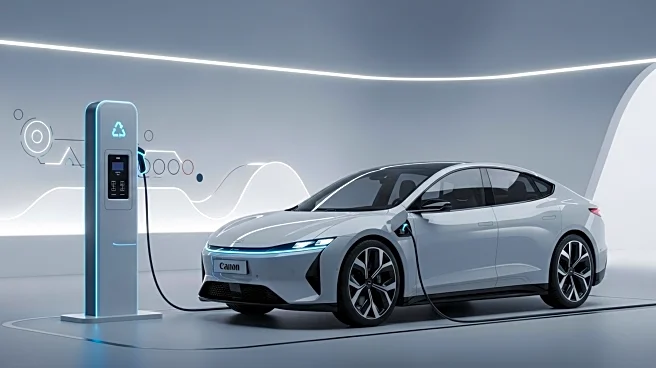What's Happening?
The Science Based Targets initiative (SBTi) is updating its automotive emissions reduction guidance to better align with the industry's challenges and opportunities. The automotive sector, responsible for over 10% of global carbon dioxide emissions, is under increasing pressure to decarbonize. The SBTi, established in 2018, provides a framework for reducing greenhouse gas emissions, helping companies align with global climate goals. The updated guidance aims to support the transition towards electric vehicles and decarbonization across the supply chain, reflecting the industry's push towards sustainability.
Why It's Important?
The automotive industry's shift towards decarbonization is crucial for meeting global climate targets. By updating its emissions reduction guidance, the SBTi is helping manufacturers set credible paths to net zero, which could significantly reduce the sector's carbon footprint. This move is expected to accelerate the adoption of electric vehicles and sustainable practices, benefiting the environment and aligning with consumer demand for greener products. Companies that successfully adapt to these standards may gain a competitive edge, while those that fail to do so could face regulatory and market pressures.
What's Next?
As the SBTi rolls out its updated guidance, automotive manufacturers will need to reassess their emissions strategies and align with the new standards. This may involve increased investment in electric vehicle technology and supply chain decarbonization. Stakeholders, including governments and environmental groups, are likely to monitor the industry's progress closely. The success of these initiatives could influence policy decisions and shape the future of automotive manufacturing, potentially leading to stricter regulations and incentives for sustainable practices.











